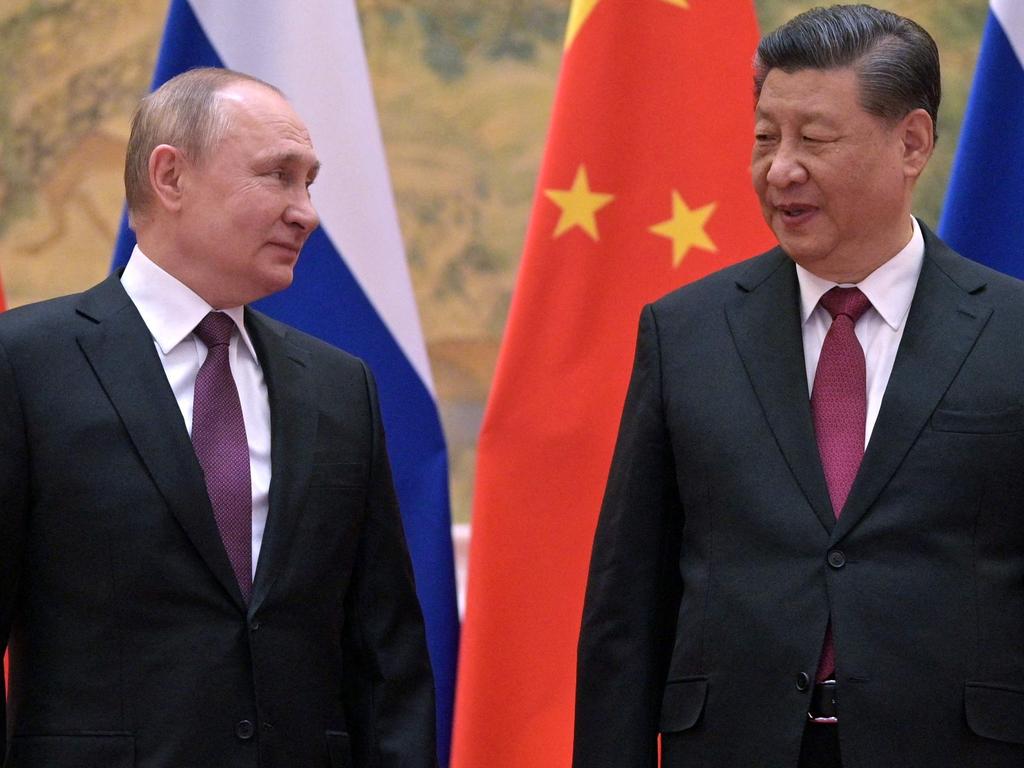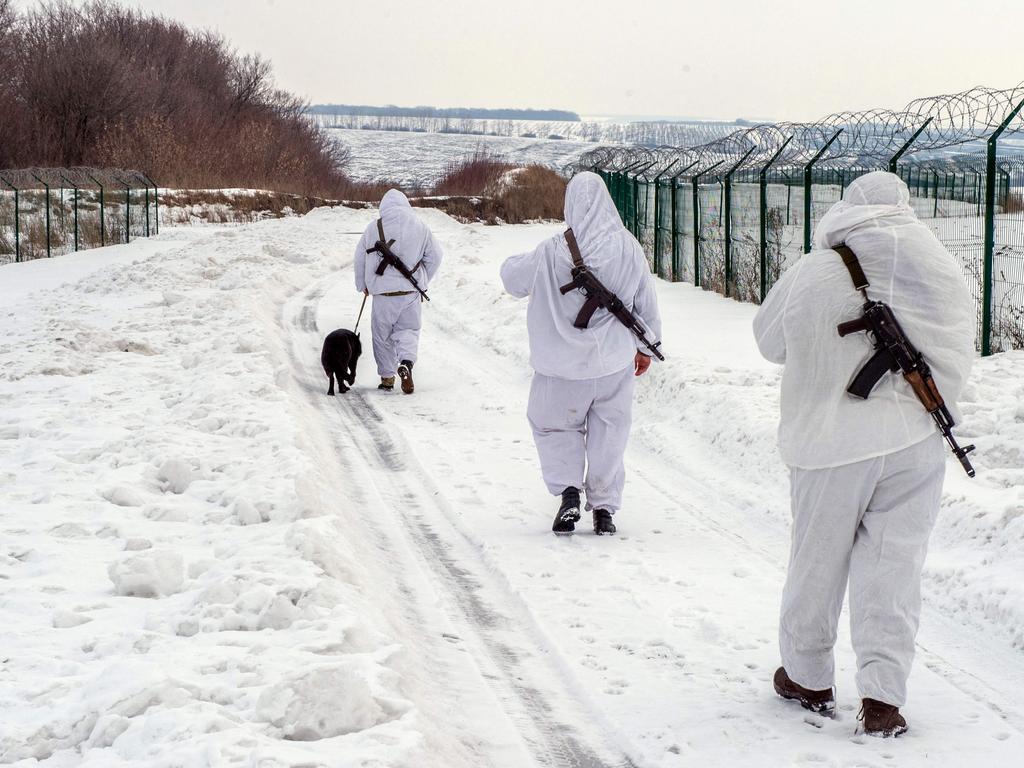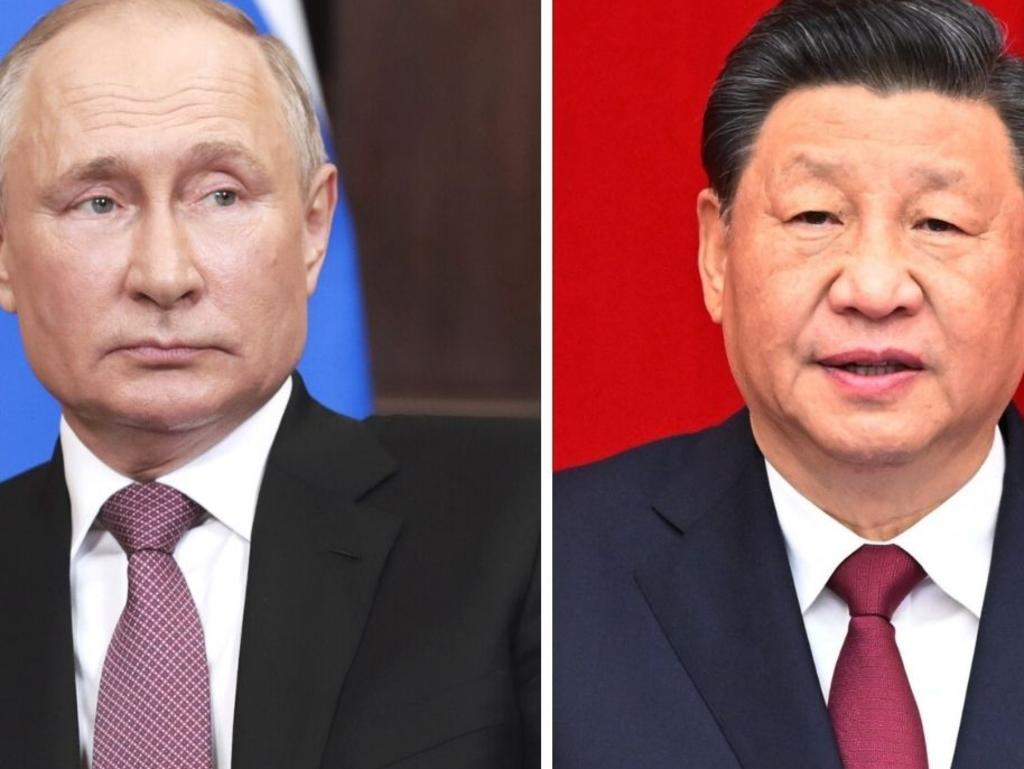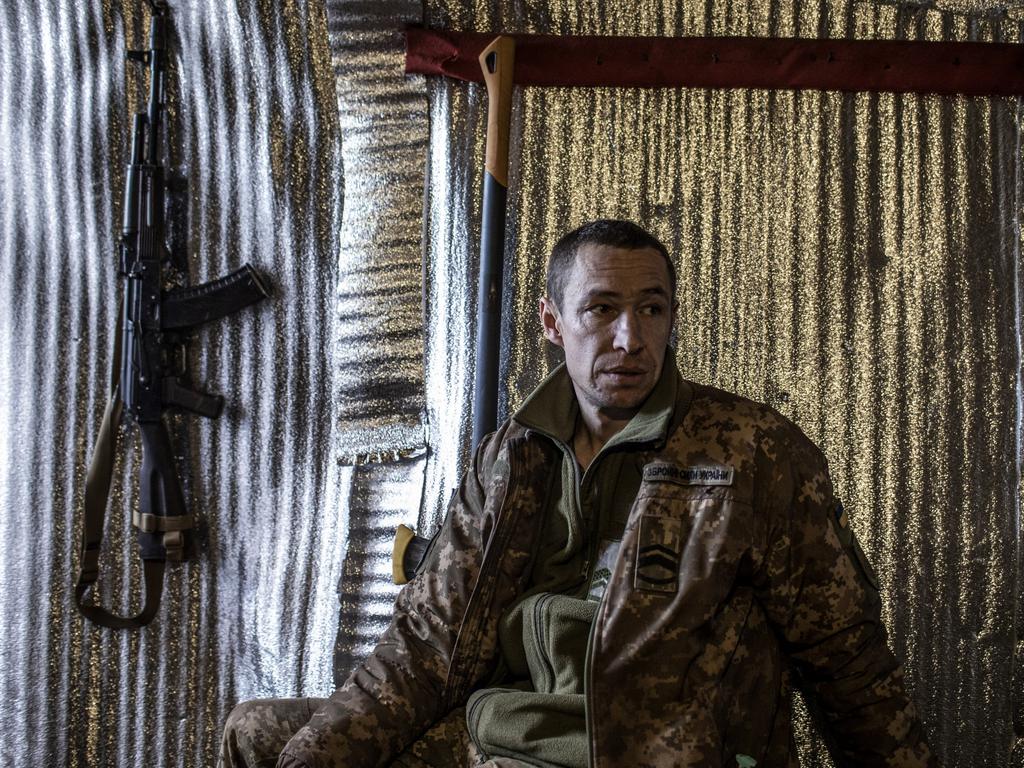How the West can confront the Xi-Putin axis

Moscow and Beijing are united by a desire to end the US-led world order. Both want their spheres of influence acknowledged and respected. Both fear the spread of democracy and want to make the world safe for autocratic regimes.
One immediate benefit for Russia and China of their closer links is they can force the US to split its attention between two theatres. Joe Biden pulled out of Afghanistan to focus better on China but now finds himself warning Americans about the economic consequences of a land war in Europe. US troops are heading to Nato’s eastern flank, the Pentagon is working out how to resupply Ukraine over land in the event of a conflict, and the State Department and the White House are involved in frantic diplomacy. It’s a win for Russia, which craves attention, and a win for China, which doesn’t. Tellingly, the Russian troop build-up has been made possible in part by the fact that, according to experts, there are fewer forces on Russia’s border with China and Mongolia than at any point in the past 100 years.

Their ability to force their common enemy to operate on two fronts will incline Moscow and Beijing to co-ordinate their actions more. One obvious worry is what happens if Russia pressures Ukraine at the same time as China moves on Taiwan? Even Washington does not have the diplomatic and military bandwidth to respond to both crises simultaneously. Dividing America’s attention and resources is a further box ticked for the fledgling Putin-Xi alliance.

Another benefit of their relationship is they offer each other a counter to the West’s economic power. Up to now, Russia’s ability to use energy as a weapon has been limited. Yes, it could pressure small countries by changing the price it charged for gas. But, ultimately, if it didn’t sell it to Europe, Russia would struggle to find a market for it. Now that China is seeking to transition from coal to gas, Russia has an alternative destination for its product. Equally, if the West banned the sale of semi-conductors to Russia - as Biden and Ursula von der Leyen, president of the European Commission, have made clear would happen in the event of an invasion - then China would offer an alternative source of supply.

It is tempting to think the West’s aim should be to split Russia and China, reprising Henry Kissinger’s Cold War masterstroke. While there are tensions over central Asia and the Arctic, their short-term interests are too aligned to fall into any Kissingerian trap. As the Japanese pointed out this week, if the democratic world fails to respond forcefully to Russia going into Ukraine, it will embolden China to think it can take Taiwan without incurring devastating consequences.

Beijing will be watching to see how much economic pain the G7 is prepared to take in imposing sanctions on Moscow. This is why Tokyo has volunteered for such pain, saying it would join other G7 nations in imposing stringent sanctions. This is in contrast to the aftermath of Putin’s 2014 annexation of Crimea, when Japan opted for far less significant sanctions than the US.
The free world needs to reduce its dependence on autocratic regimes, to make sanctions more credible and conflict less likely. The US is already helping Europe curb its reliance on Russian gas. Daniel Yergin, a US energy expert, said that for the first time last month Europe received more liquified natural gas from America than pipeline gas from Russia. Emmanuel Macron’s push to have nuclear acknowledged as a green source of energy and to build a new generation of nuclear plants is another step in the right direction. There should also be a co-ordinated approach to developing modular reactors that would be far cheaper than traditional nuclear plants. They would reduce dependence on Russian gas and cut carbon emissions too.
The democratic world should be aiming to write the rules of the road on new technologies.

One interesting idea has been proposed by Jared Cohen, who runs Google’s ideas arm, and Richard Fontaine, head of the Center for a New American Security, a think tank with close links to the Biden administration. They propose an alliance of technologically advanced democracies: the T12. This would bring together the US, the UK, France, Germany, Australia, Canada, Japan, South Korea, Finland, Sweden and ideally India and Israel to create new rules on AI and data, as well as ways to respond to cyberattacks.
Such collaboration won’t be easy: America and the EU have very different standards on data privacy. As one figure familiar with these discussions laments, “the West is divided between two large regulatory blocs which cannot and will not mate”. Yet, if democratic countries cannot find a way to co-operate, China may well end up dominating these new technological spheres.

The democratic world needs to realise that the US can’t be expected to bear so much of the military burden. So-called “Asia-firsters” in Washington are arguing that Ukraine is a distraction from the question of how to deal with China. The best way to counter that is to show that the Europeans are pulling their weight. Russia’s economy may be smaller than Italy’s, but in 2019 the Kremlin spent about 30 per cent more on defence than the UK, France or Germany. Putin is causing mayhem because he has invested in his military: the European powers have been skimping and it shows.

It is not strategically sustainable that only nine European members of the North Atlantic alliance, including Britain and France but excluding Germany, meet the Nato minimum of spending 2 per cent of GDP on defence. Nato estimates the US spent 3.52 per cent of GDP on defence last year, the UK 2.29, France 2.01, Germany 1.53 and Italy 1.41. But the 2 per cent target is no longer enough. For a while, European countries could say that high defence spending was not needed in the post-Cold War world and they could afford to spend more on health and welfare. That is now almost impossible to argue. Japan needs to abandon its self-imposed limit of spending only 1 per cent of GDP on defence.

The democratic world has its differences and tensions. Its members’ interests are not perfectly aligned and they are economic competitors. Yet, if they cannot come together at this moment, in the face of this new and sustained threat, then the world will only become safer for autocracies and more precarious for democracies.
(James Forsyth is political editor of The Spectator)
The Times







A new phase of history has begun. The liberal world order faces its greatest challenge since the fall of the Berlin Wall in 1989: not just with Russia’s actions on the border with Ukraine but China’s manoeuvrings in Asia. The burgeoning friendship between Vladimir Putin and Xi Jinping might be based on the idea that my enemy’s enemy is my friend. But it is no less of a threat for that.